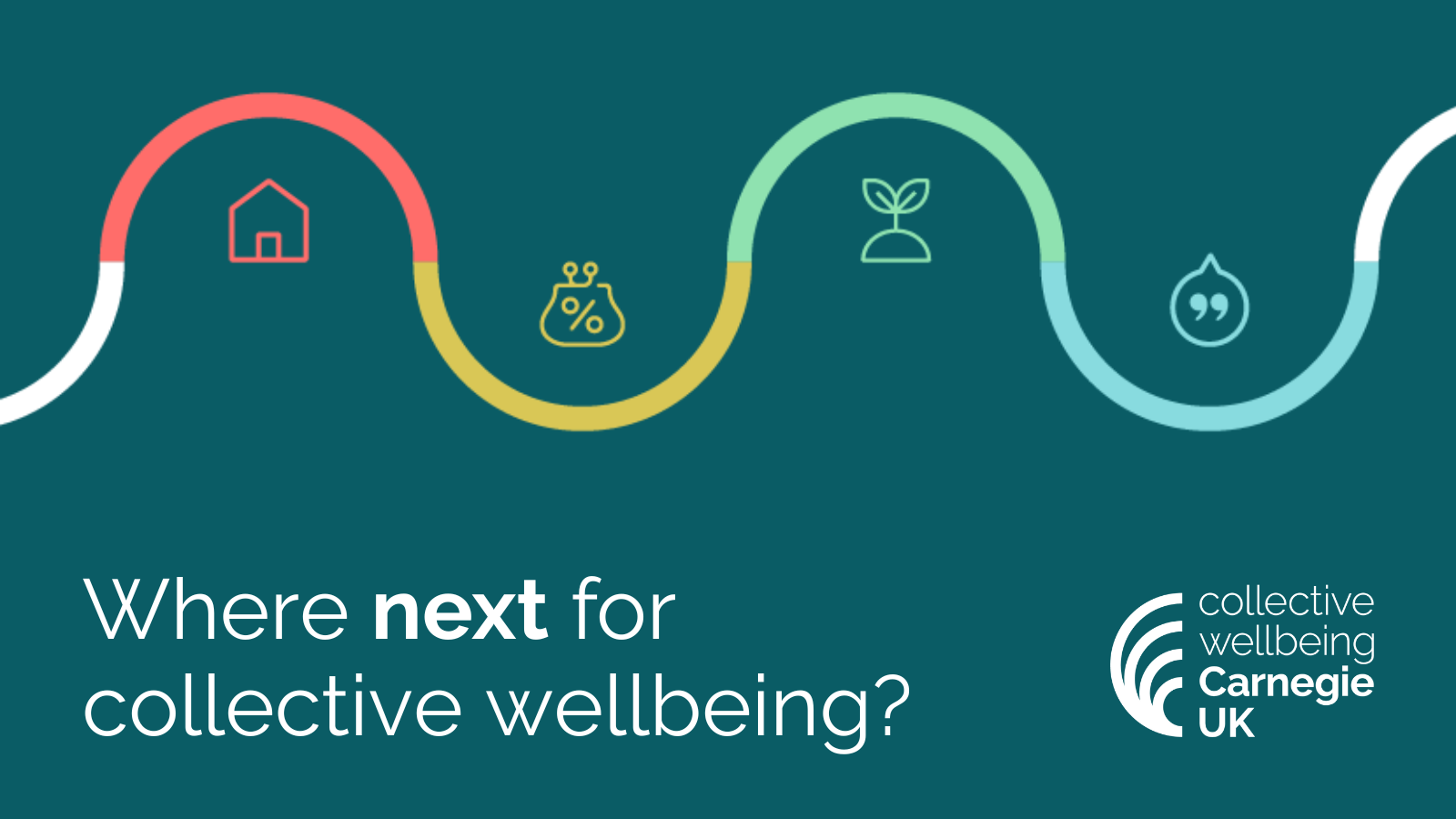Where next for collective wellbeing?

- by Hannah Paylor, Carnegie UK
- 9 March 2023
- 3 minute read
The UK is a very different place now, than it was two years ago when Carnegie UK published the first Gross Domestic Wellbeing score – our measure of social progress. A global pandemic. A cost of living emergency. A climate crisis looming. Several prime ministers. A new monarch.
In that time, the UK public has directly experienced how different spheres of our lives interlink and interact. The cost of living emergency, for example, has demonstrated that how much money we have left in our pockets impinges on our daily choices, like how much time we can spend outside our homes, or with friends or family.
At Carnegie UK, when we talk about collective wellbeing, we mean everyone having what they need to live well, and comfortably. But despite seeing and experiencing the very real and tangible effects of the last two years on our daily lives, there appears to be less interest in a different approach: one that puts wellbeing at the centre of decision making. And though early into COVID-19 many hoped for ‘The Great Reset’, there’s currently limited appetite for thinking differently about how we understand society both by key decision makers and the UK public.
The increasingly evident limitations of GDP and rising inequalities underline the importance of doing more to advocate for our vision of collective wellbeing.
Following the launch of our Strategy for Change, we wanted to learn more about how we could ensure our approach would have the best chance of creating change, aligned to our values. So, in summer last year, Carnegie UK commissioned Lucent Consultancy to undertake a series of stakeholder interviews. They spoke to people with direct policy experience and civil society organisations with an interest in wellbeing in policy making.
But what did we learn?
- There is a growing international movement for measures of wellbeing. However, this has led to the development of a range of measures which are potentially in competition with each other. The wellbeing movement now needs to make it easy for policymakers to navigate these to find the support, tools and resources they need to succeed.
- The debate over the merits of different approaches and alternative measures of GDP is unlikely to settle any time soon. GDP has been part of public debate since its inception in the 1930s. Changing this ingrained narrative will not happen overnight.
- There has been a welcome increase in understanding of wellbeing among UK civil servants. However, impact on policy is proving more elusive and the Westminster context is particularly hostile and is likely to remain so for some considerable time.
- There is an important role for organisations to increase public understanding of the limits of GDP. This was identified as a critical pre-condition for creating enduring political commitment to alternate measures.
- There was an encouragement for Carnegie UK to continue working in partnership on this issue and to deepen its understanding of organisations already working in closely related issues nationally and internationally.
Where next?
In the coming weeks, we’ll be sharing more information about our proposed plans and next steps. Taking this learning on board, our plans are focused on increasing public and cross-sector understanding of measures of collective wellbeing. We look forward to continuing to play our part in this important movement for change.
Help us make the case for wellbeing policy
Keep in touch with Carnegie UK’s research and activities. Learn more about ways to get involved with our work.
"*" indicates required fields
